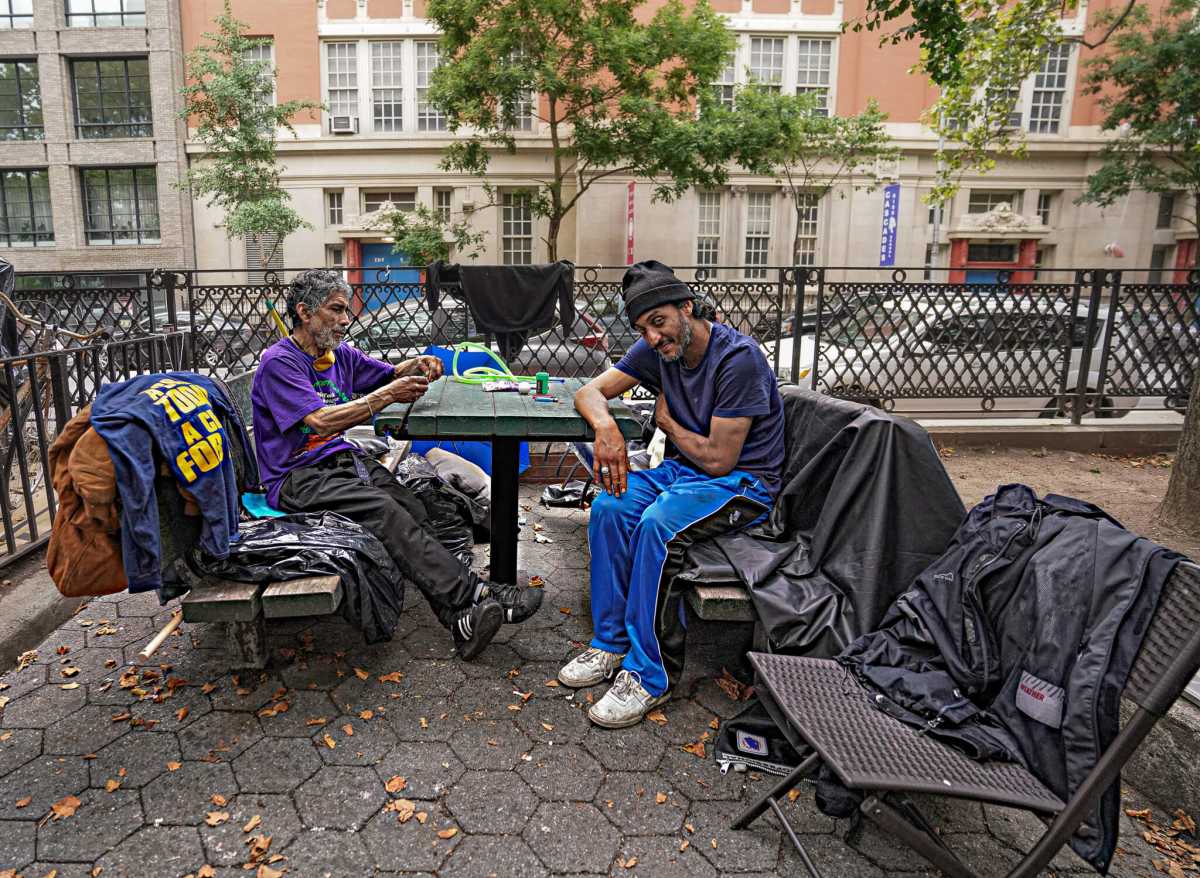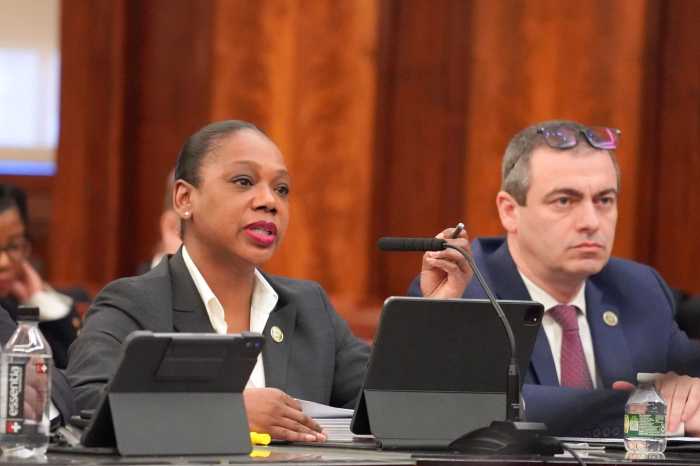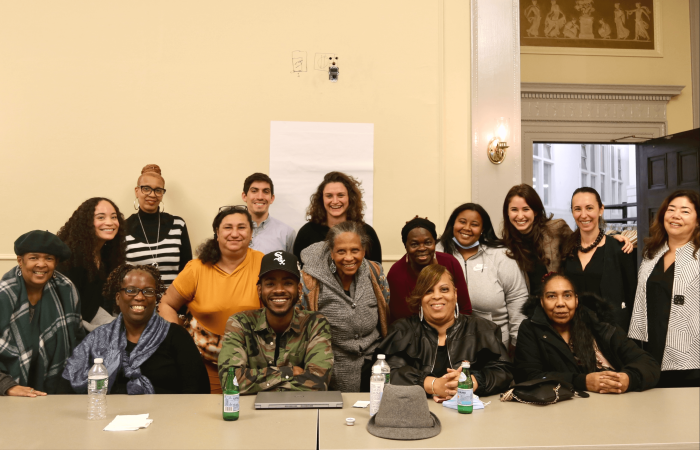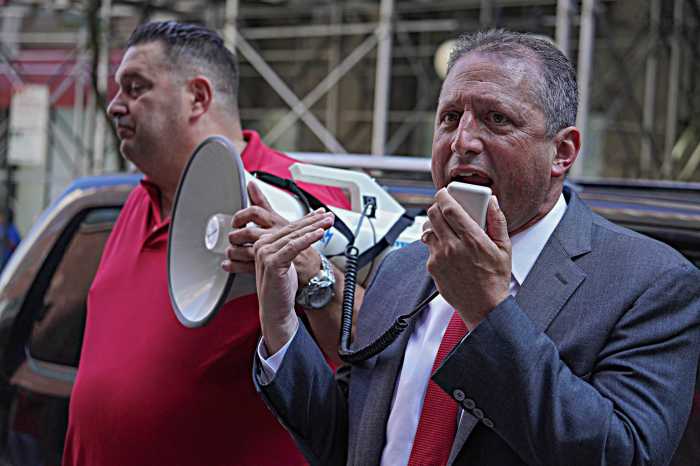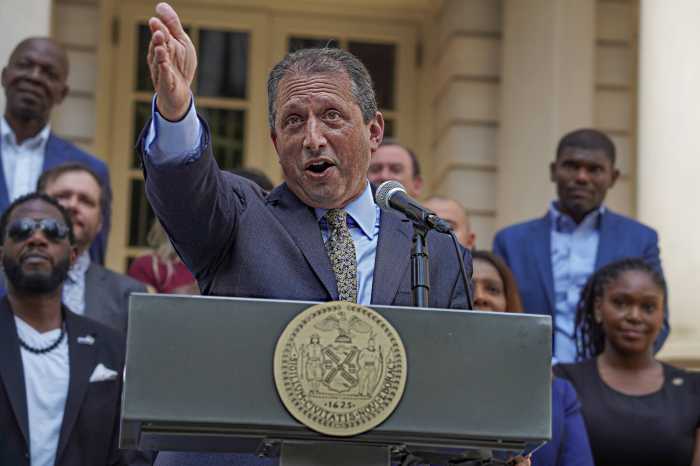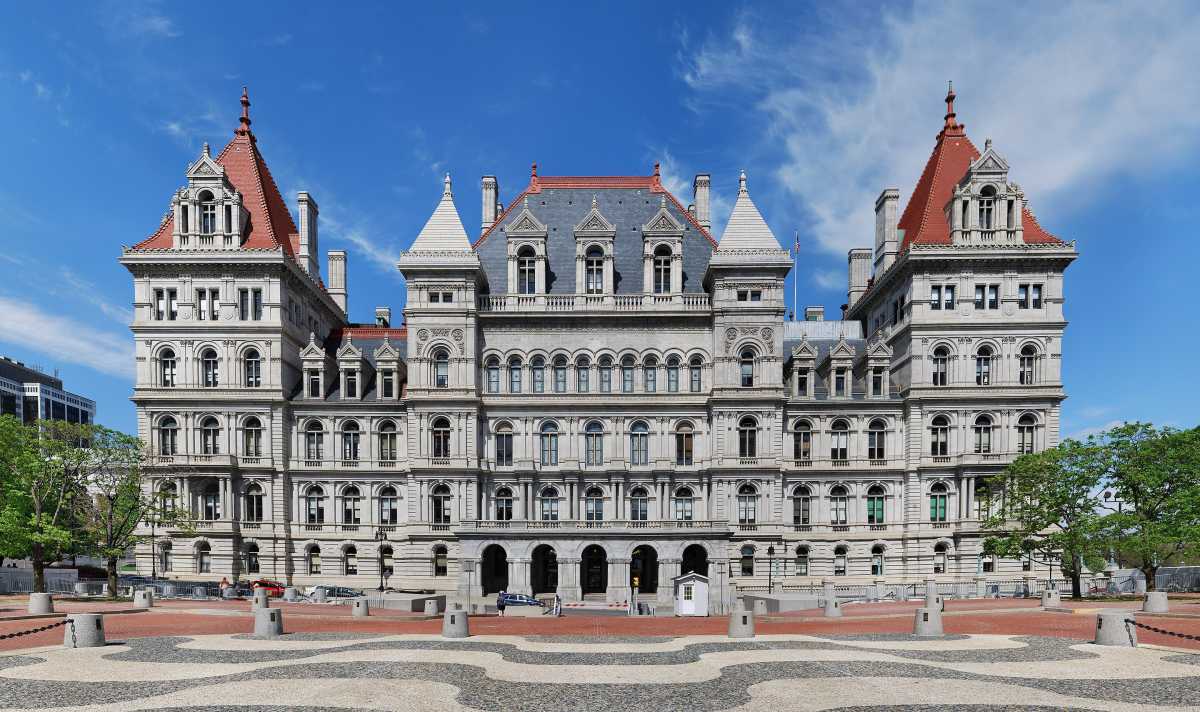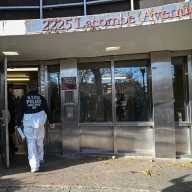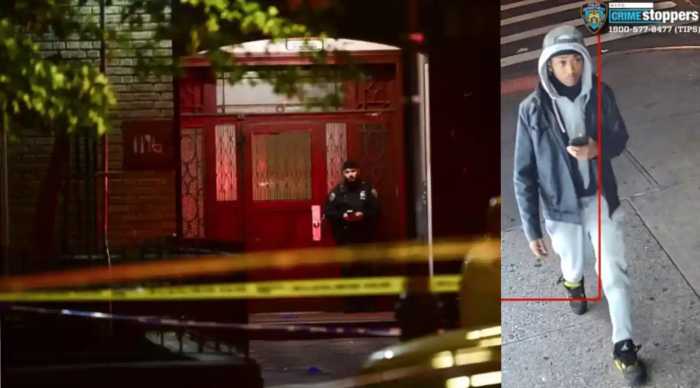More than 2,300 homeless New Yorkers were forcibly removed from the streets in encampments sweeps last year — but just three of them wound up receiving permanent housing afterward, according to an audit that City Comptroller Brad Lander announced Wednesday.
The city’s fiscal watchdog called upon the Adams administration to immediately halt encampments sweeps across the city while announcing the audit’s findings on June 28 at Tompkins Square Park, in the shadow of what was once Anarchy Row — a homeless encampment that became the infamous casualty of the sweeps in April of 2022, seeing the arrest of several unhoused individuals for refusing to pack up and leave their small patch of sidewalk.
Lander charged that the many encampment sweeps which occurred since March 2022, after Mayor Eric Adams ordered such operations to clear the streets and offer assistance to the unhoused, had failed in providing those living on the streets with long-term housing.
The comptroller’s office investigated the city’s Department of Homeless Service and the sweeps that occurred between March and November 2022. While 2,308 people were forcibly removed from encampments, the audit found that only three impacted individuals received permanent housing as a result.
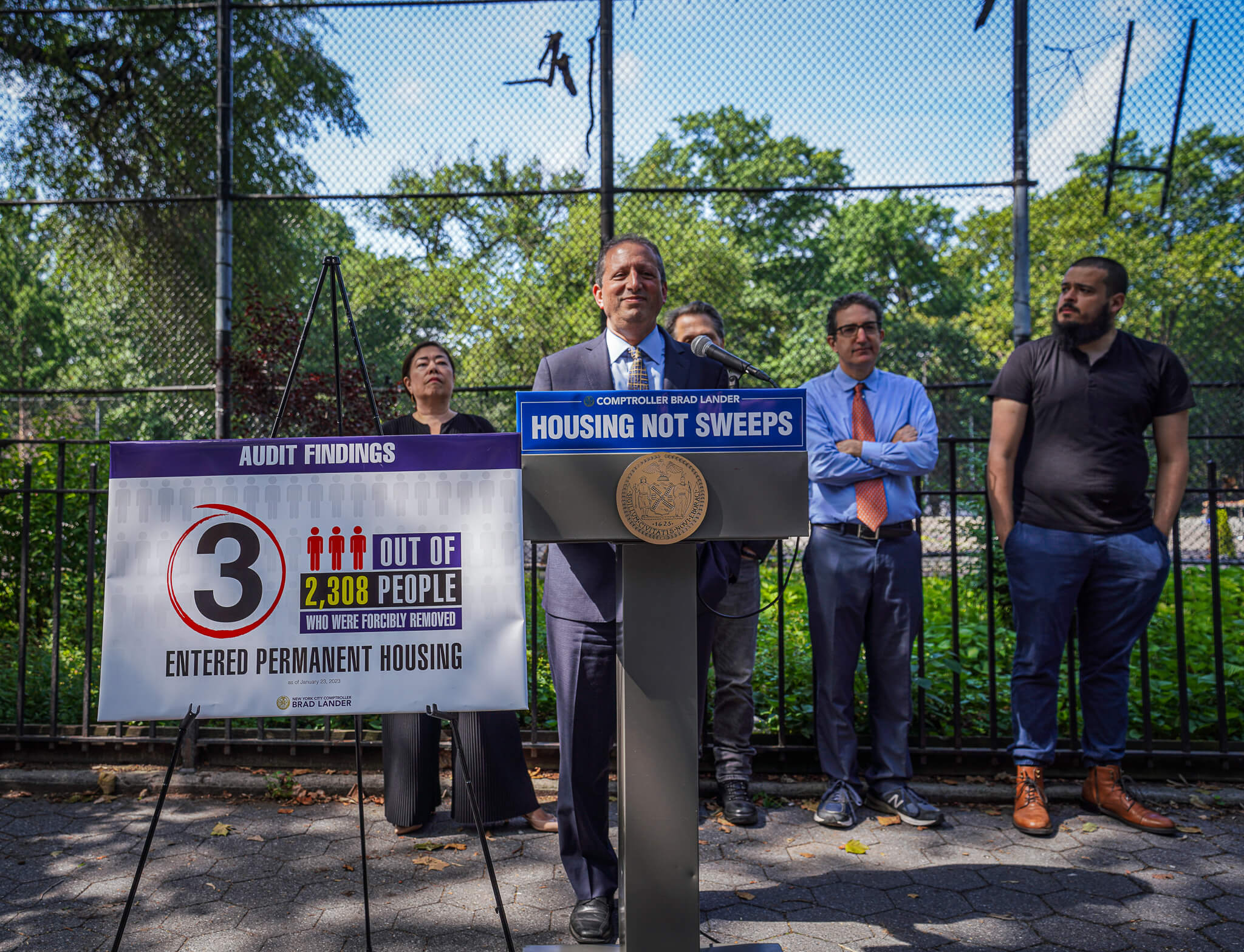
“Despite the fact that the primary goal was to provide these individuals with access to temporary housing and assistance, 2,189 of the 2,308 people, or 95%, did not go into shelter for a single night and there is no record of other services that they received,” Lander said. “99.9% of them remain homeless. That is what we call in the business a policy failure.”
The report also found that as of Jan. 23, 2023, just 43 people of those impacted by the sweeps remain in shelter. Moreover, the audit alleged that the sweeps did not prevent homeless individuals from creating encampments elsewhere.
On April 12, 2023, auditors visited 99 identified locations where the task force swept in 2022 and found that people rebuilt some form of encampment at 31 of the same sites — nearly a third of the 99 locations.
The comptroller says it’s time for the sweeps to be stopped.
“End the sweeps. They’re counterproductive. They harm the trust needed to build relationships, and they failed utterly to connect people to services and shelter,” Lander said.
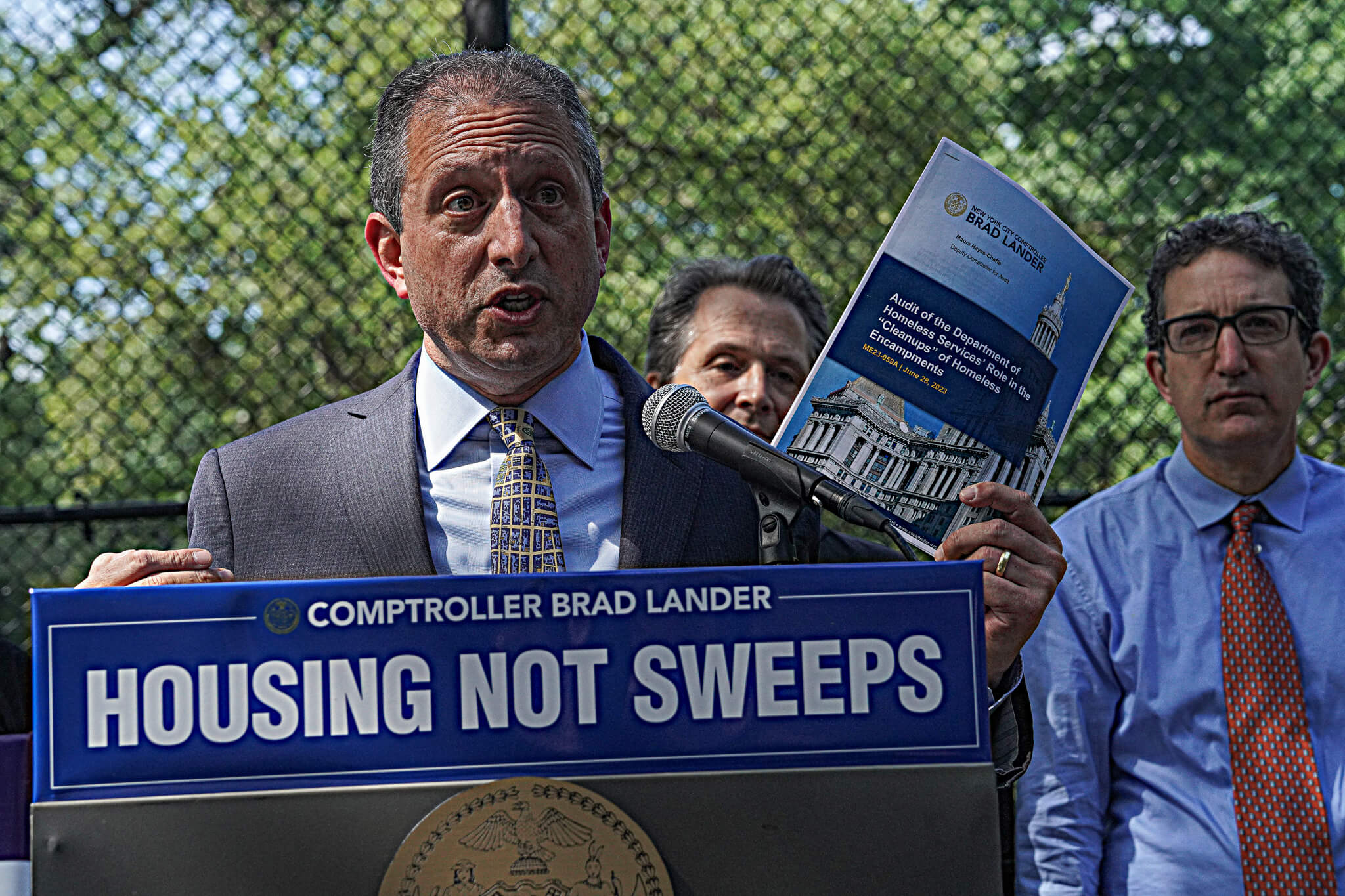
The Comptroller’s office called for New York City to establish a large-scale “Housing First” program, an evidence-based practice that prioritizes providing permanent housing without first requiring individuals to enter shelter or graduate through a series of programs or services.
Missing context?
The mayor’s office fired back against the audit report on Wednesday.
Sources within City Hall criticized Lander for merely focusing on DHS, arguing that the policy is made up of multiple agencies, including the NYPD, which has generally been tasked with leading the sweep operations.
City Hall sources also stated that they believe Lander’s office is missing the context of the sweeps, contending that those in the street require more wrap-around services to deal with underlying issues and time to establish a rapport with caseworkers.
“Despite the inherent difficulty of this work, our efforts have been indisputably successful. In the first year of this initiative, New Yorkers experiencing unsheltered homelessness accepted services at six times the rate they did under the previous administration’s approach and a significant majority of cleanups have not resulted in an encampment being re-established,” a City Hall spokesperson said. “We also are glad to hear that the comptroller agrees with us on the importance of innovating to get more people housed faster, which is why our administration embraced the housing-first model last year and launched our ‘Street-to-Housing’ pilot. That one pilot alone has already placed nearly 80 New Yorkers experiencing homelessness directly from the street into an apartment. As a result of our robust shelter system and other efforts to help unhoused New Yorkers, New York City maintains a far lower rate of unsheltered homelessness than any other large city in the United States.”
The aftermath
Johnny Grima, a former member of Anarchy Row, was arrested multiple times in spring of 2022 for failing to take down his tent when ordered. He sat down with amNewYork Metro at 9th Street and Avenue B on June 28 to discuss the findings of the report.
Sitting beside where only last year he was handcuffed and carried into the back of a police wagon, Grima recalled the emotional trauma he says the removals had on not only on him, but also on fellow unhoused residents like Sinthia Vee, who is still currently unable to care for herself after suffering a stroke which, she claimed, was the result of sweep-related stress.
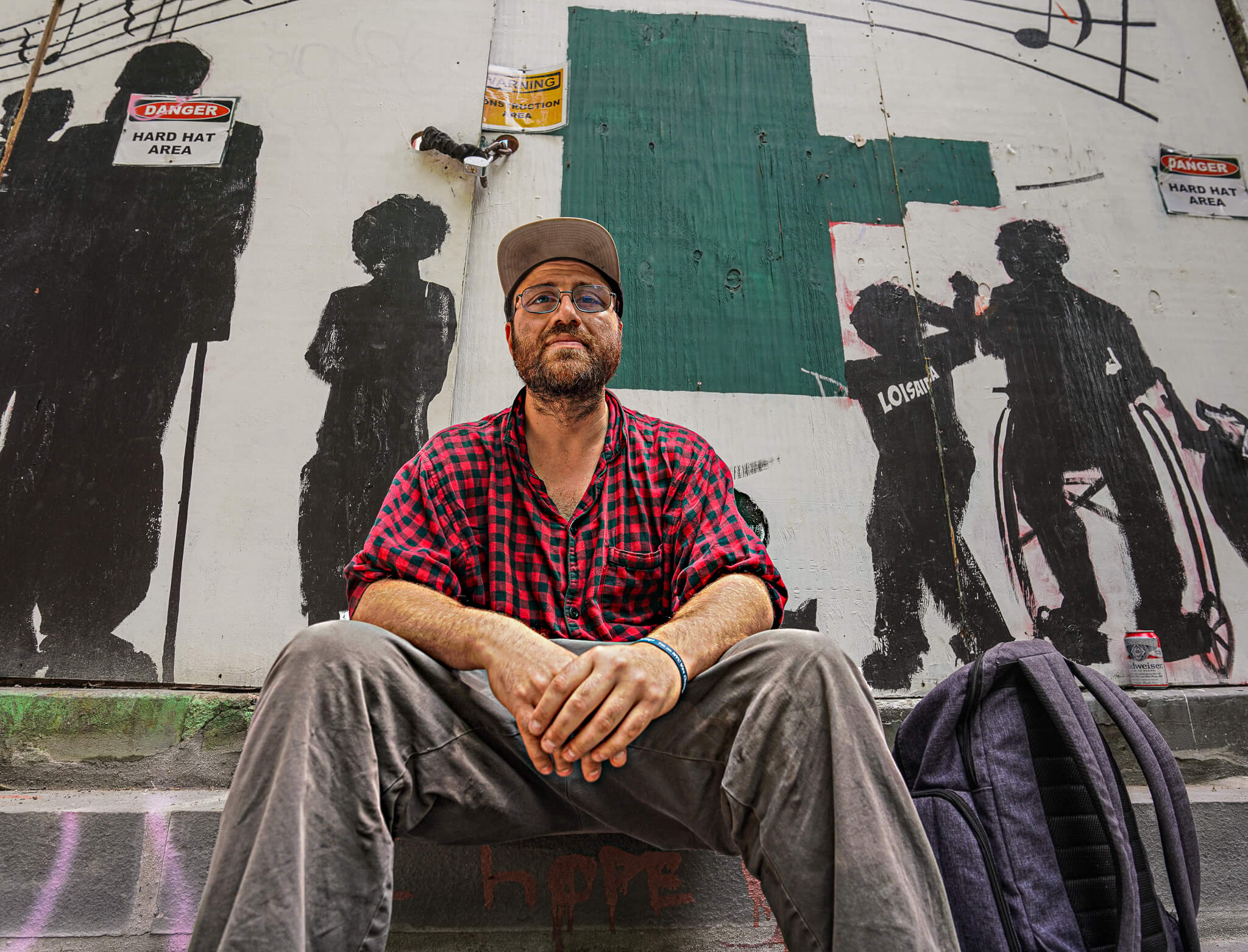
“Whatever problems that you have, with all this extra pressure from not having a place to live, it’s compounded upon by the sweeps,” Grima said, puffing on a cigarette.
Grima told amNewYork Metro that he was shocked to see the audit report, stating that although he believed the sweeps were doing more harm than good, he didn’t expect the numbers to reflect such little progress.
“Honestly, that’s even worse than I would expect. I mean, they’re just not doing anything for anybody, clearly,” Grima said.
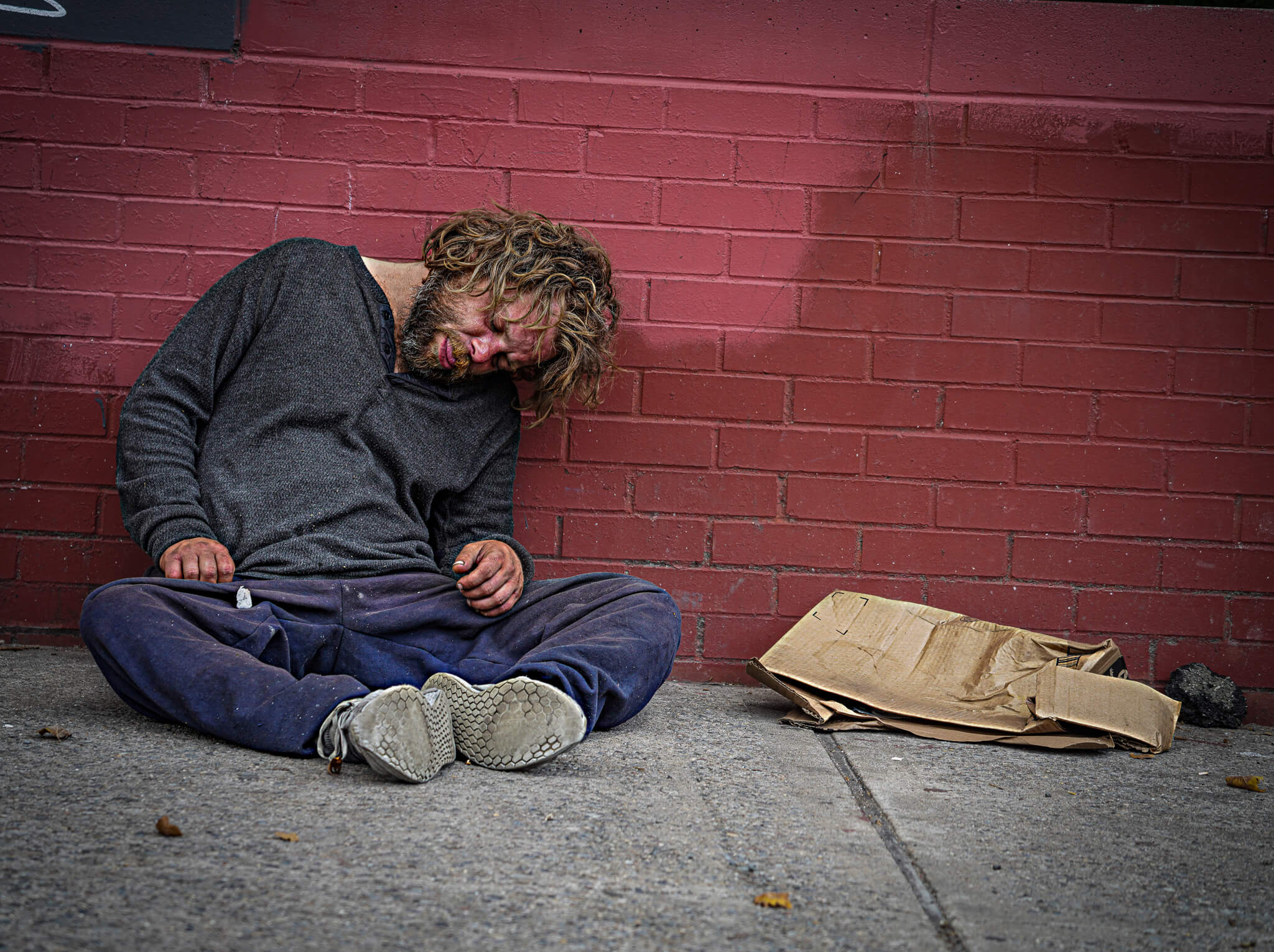
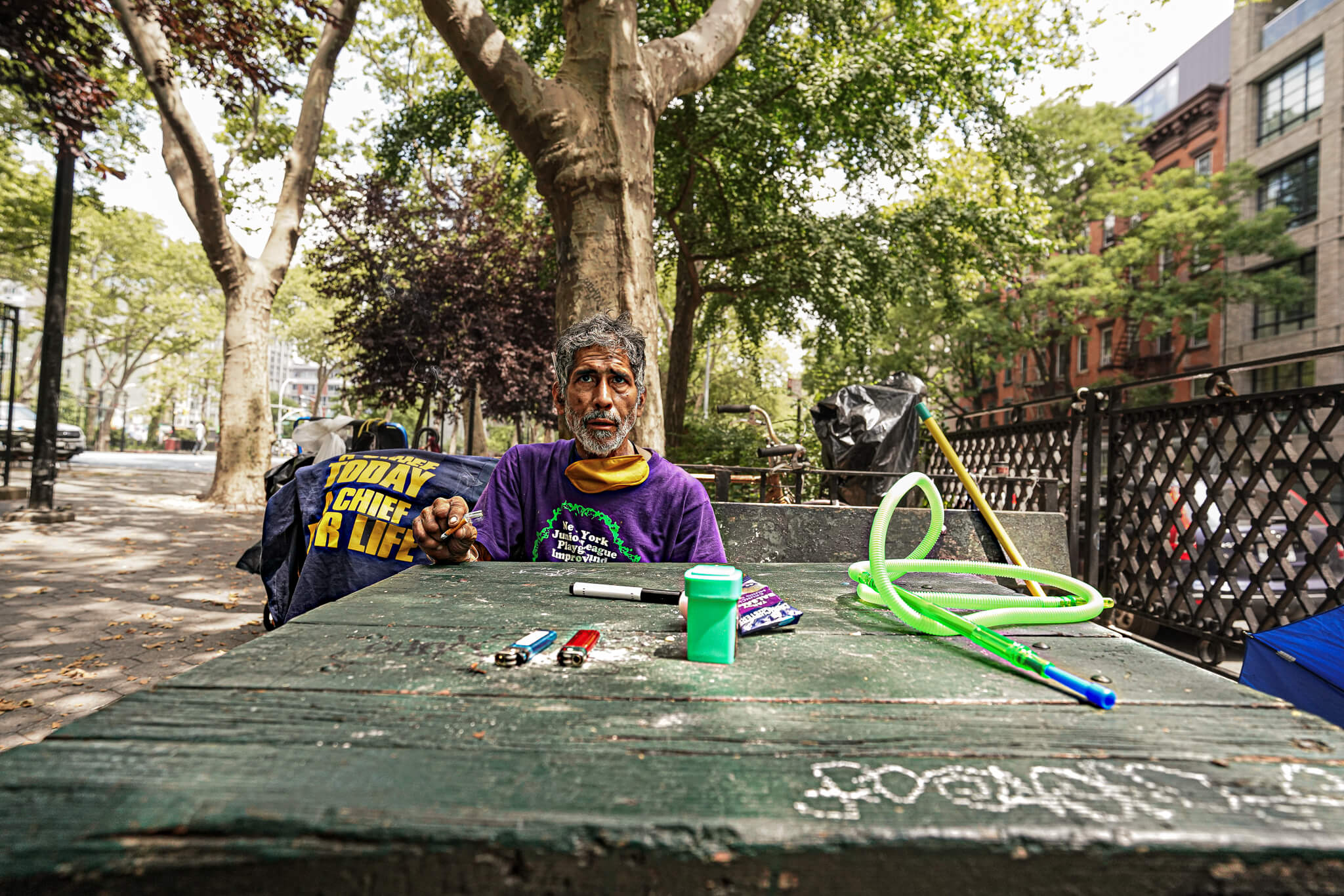
Those who are experiencing street homeless and currently living in a makeshift encampment also reacted to the audit.
Albert is staying on a bench draped with blankets at Sara D. Roosevelt Park on the Lower East Side with a friend. He said that while he understands that those sweeping encampments are only doing their jobs, it also makes life for him harder than it already is. While he declared he stays out of the shelter system due to their condition, he also said that he invites others who are experiencing hardships to stay with him for protection.
“I tell them this is a safe haven, you can go to sleep,” Albert said.



